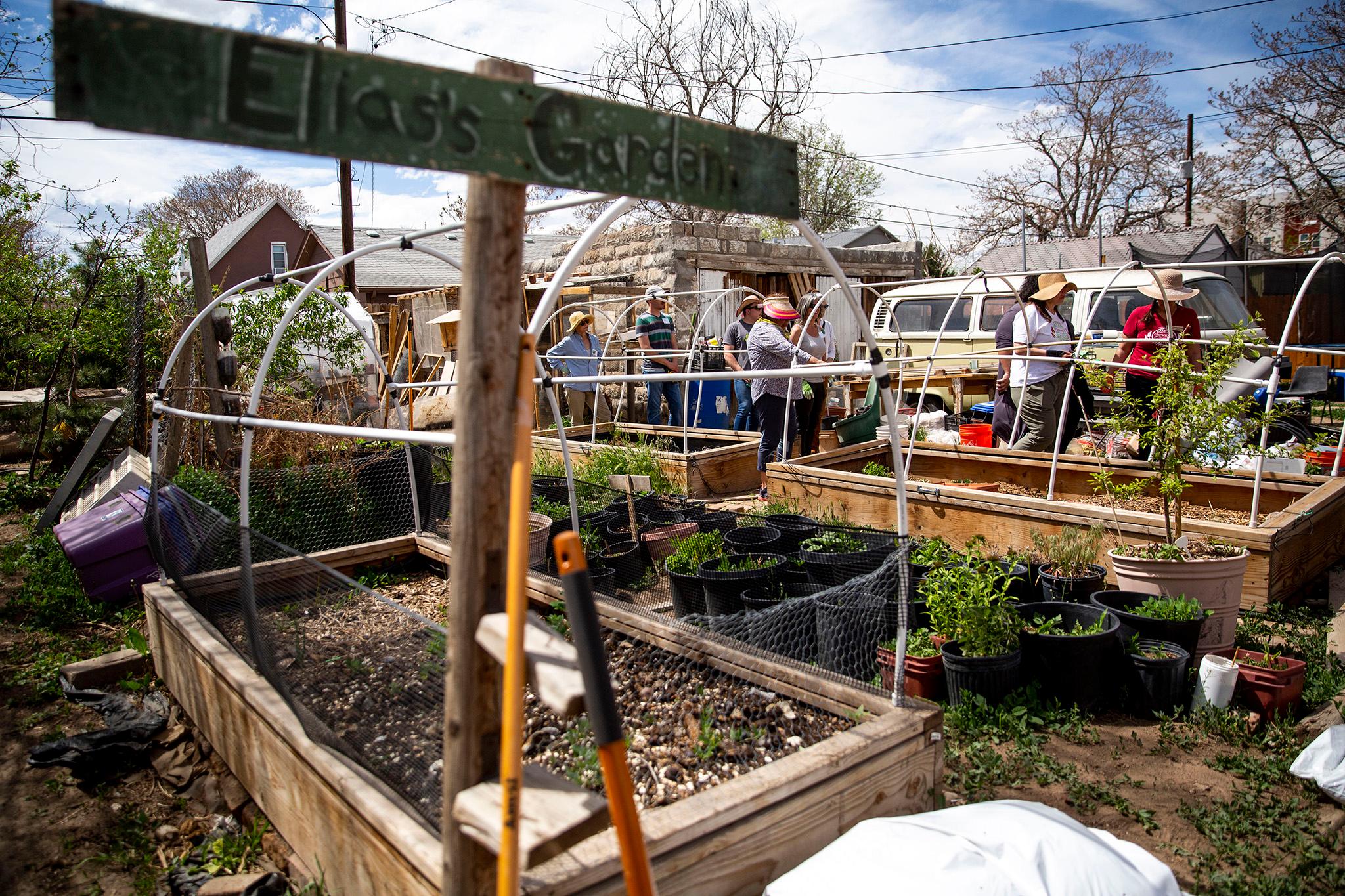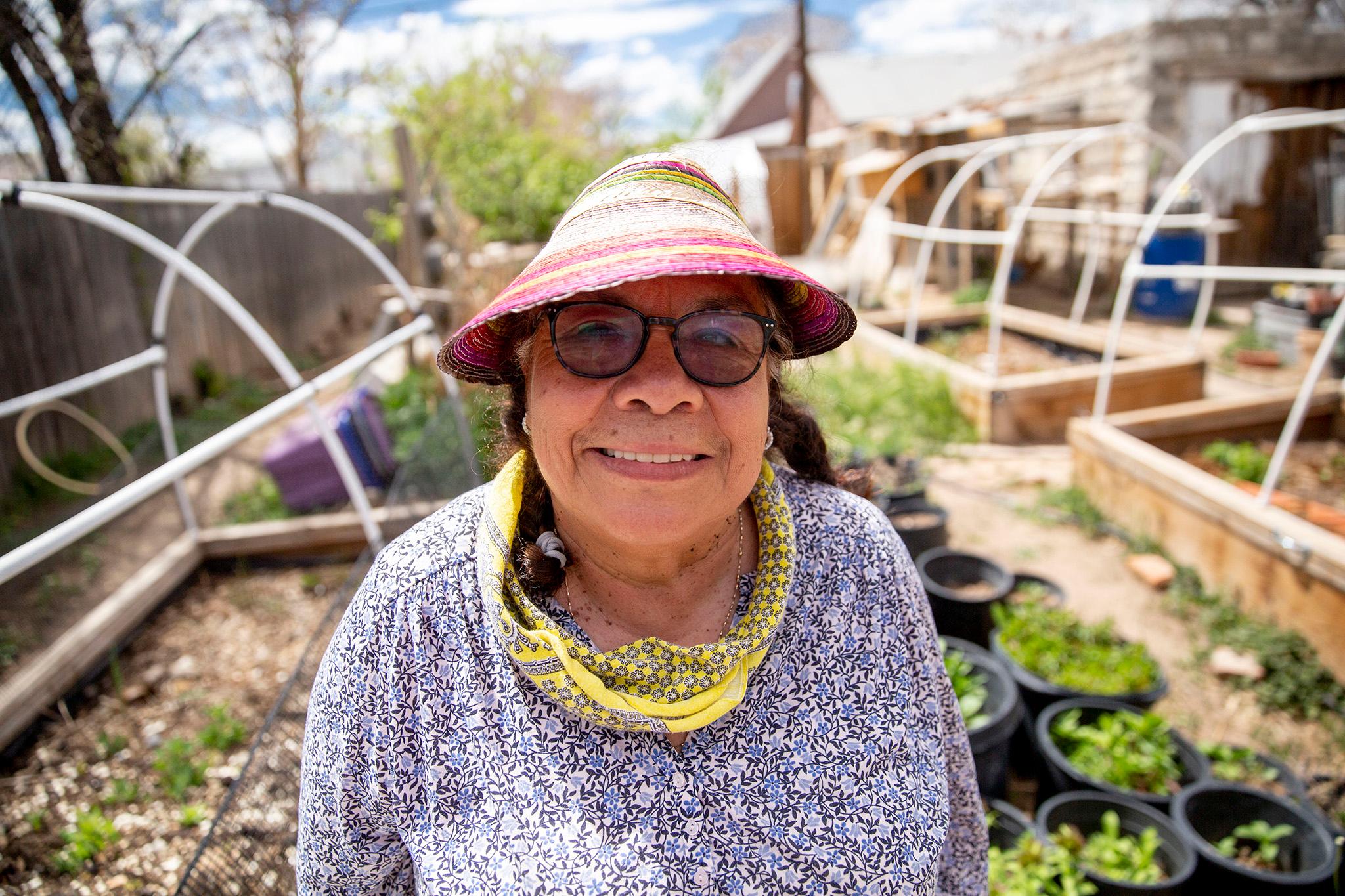When you walk into Dolores Alfaro's backyard in Elyria-Swansea, you're first greeted, or maybe startled, by a screeching "cock-a-doodle-do!"
That's Enrique, the rooster.
After the greeting, you'll notice the green oasis. Alfaro's backyard is filled with pots upon pots upon pots...upon pots upon pots of greenery. Small plastic pots filled with cilantro and mint. Medium containers of beans and chile peppers. Large ceramic pots harvesting spring onions, corn and squash. Mini containers with pasote, papalo and other medicinal herbs. Some of the pots are even growing unknown cross-breeds.
There's raised garden beds, a makeshift greenhouse, a composting worm farm and fruit-bearing tree.
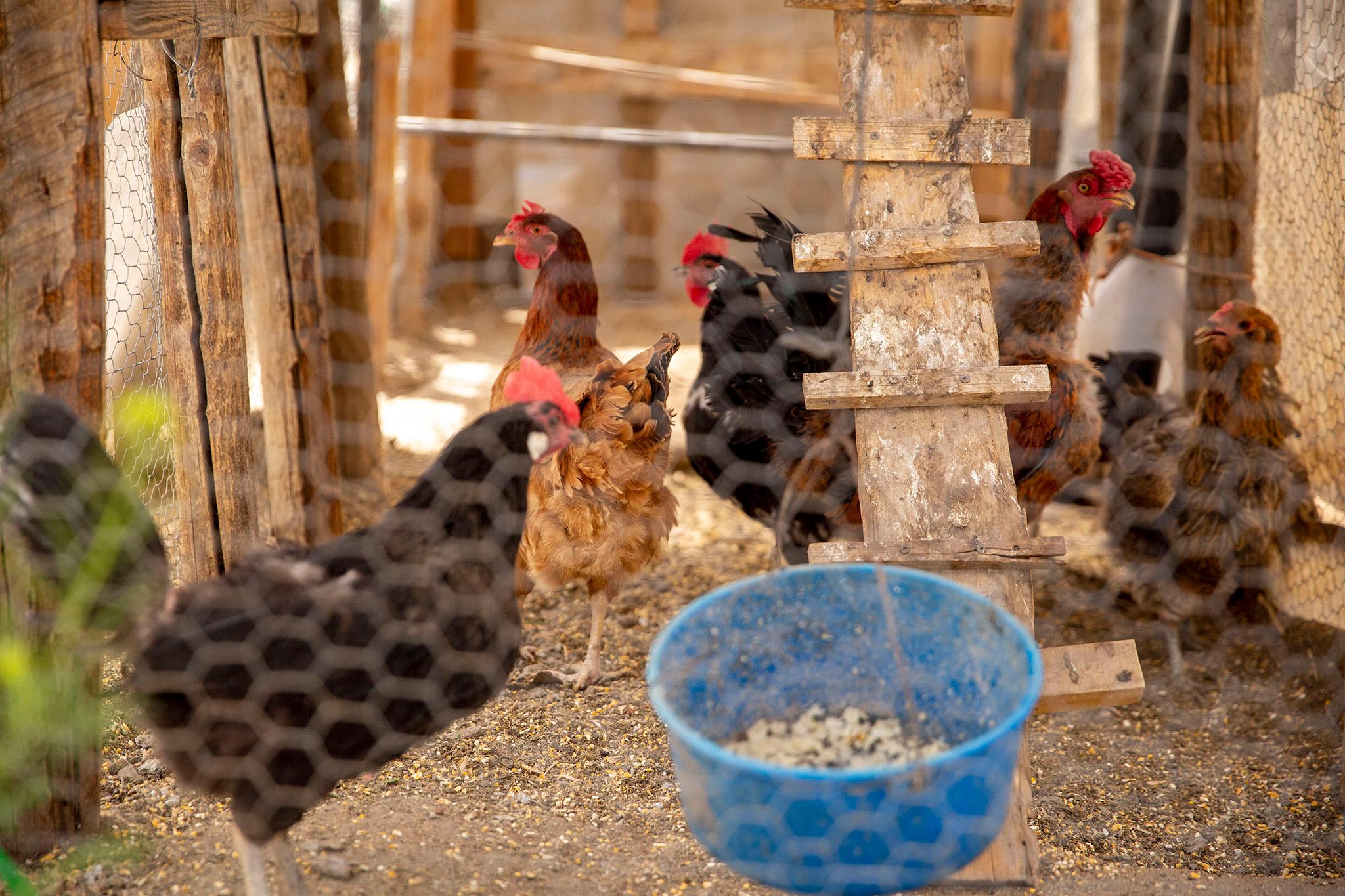
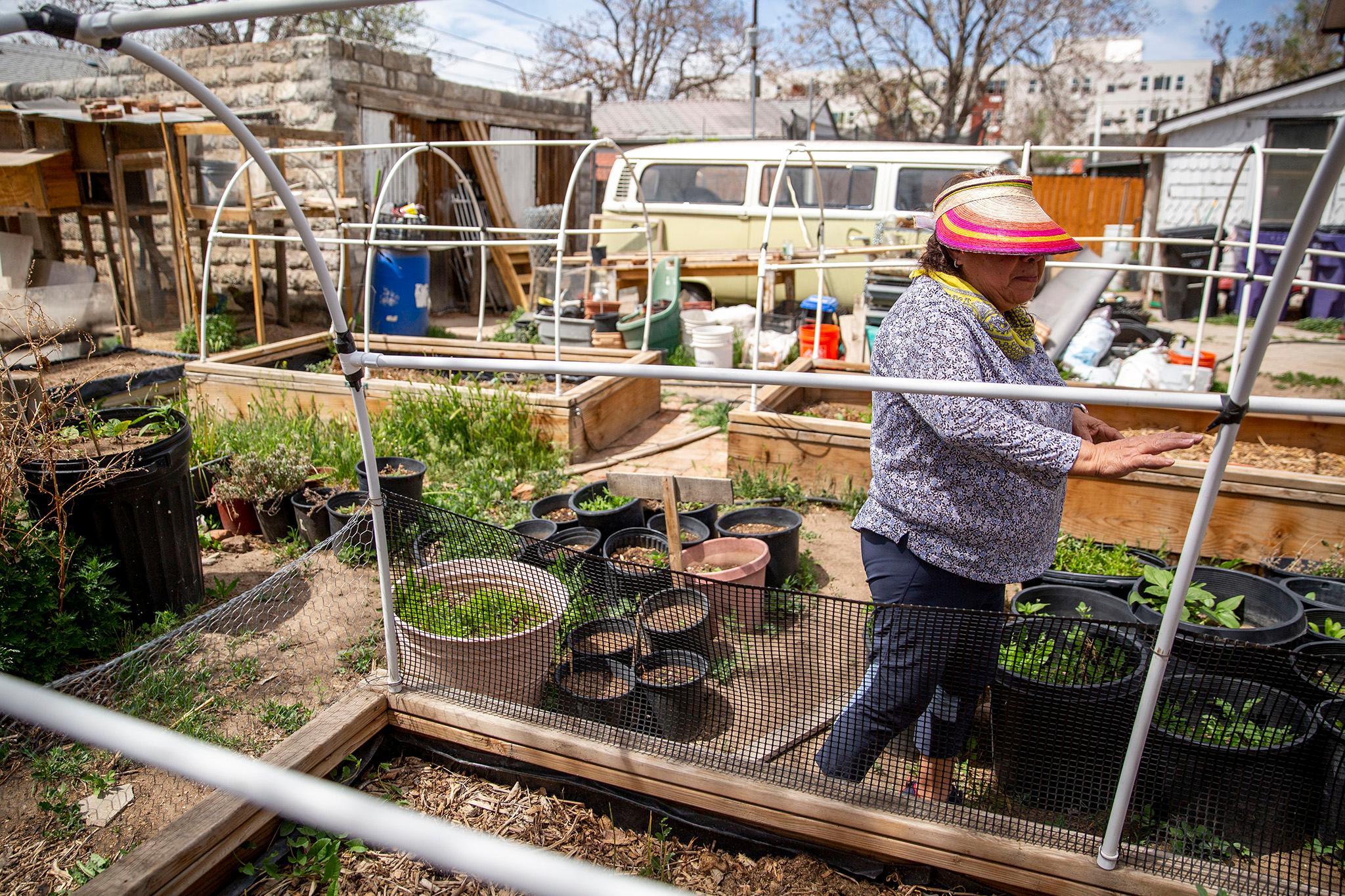
While parts of farming and harvesting are enjoyable -- Alfaro explains all this in Spanish with a smile as large as the brim of her rainbow hat -- it's also a necessity. Growing vegetables, fruits and herbs is a way for Alfaro and her family to have some sustainability when it comes to food access and cost.
And she's not alone. Like many other families in the Elyria-Swansea, having a backyard garden is a way to produce cooking necessities, especially since the neighborhood is considered a food desert. According to the United States Department of Agriculture, an area is considered a food desert when at least 500 people, or 33% of the area population, lives more than one mile away from a supermarket or large grocery store.
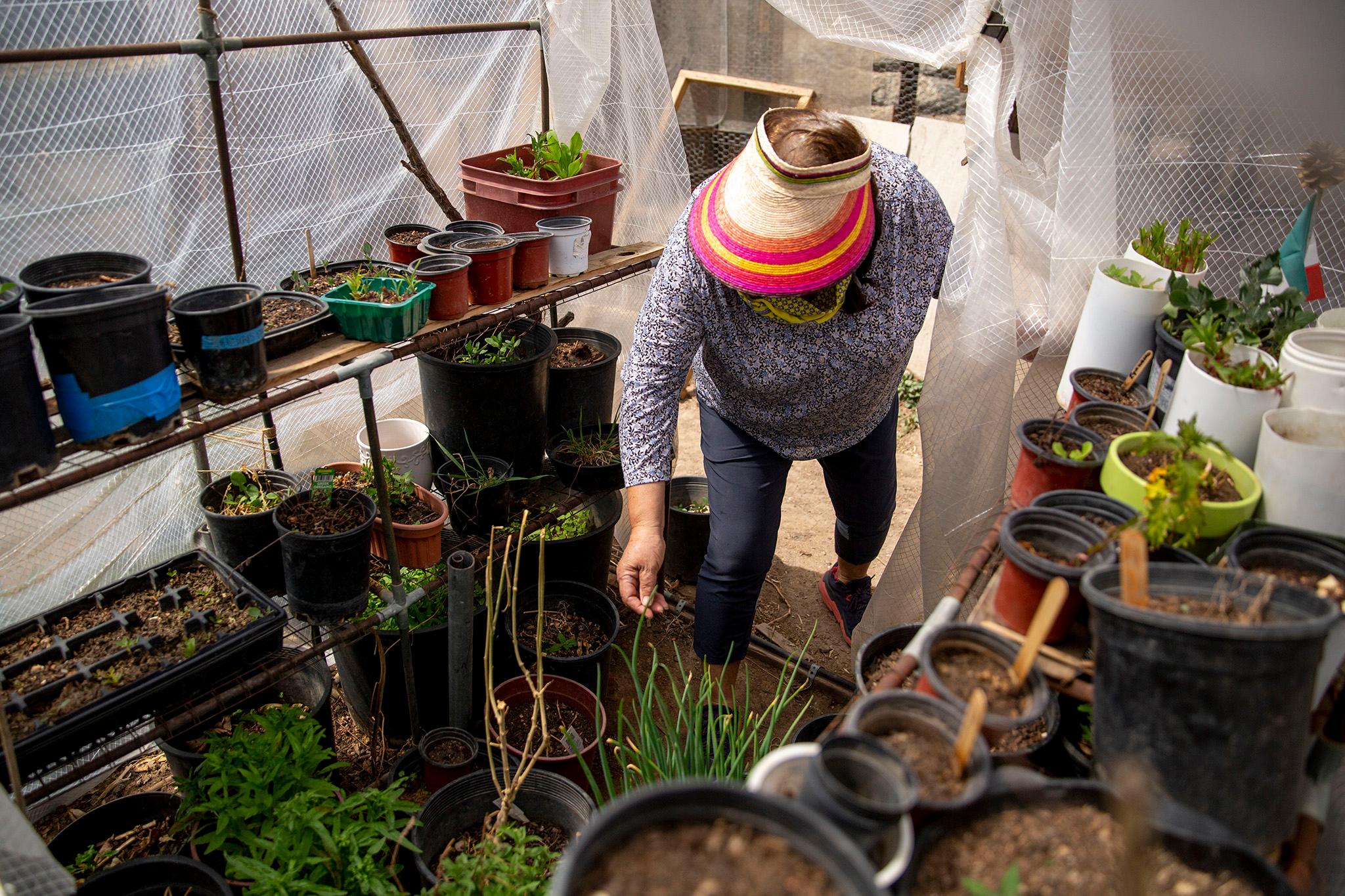
7-Eleven is about a mile away from Alfaro but that would only supply the family with snacks and frozen meals. Park Hill Supermarket is about 1.7 miles from Alfaro's home which, according to Google maps, is about a 30 minute walk if she doesn't have access to a vehicle. According to Denver City Council member Candi CdeBaca, Elyria-Swansea hasn't had a grocery store since the now-demolished I-70 viaduct was constructed in the 1960s.
There's also a matter of cost. According to neighborhood data, 40% of GES residents regularly cannot afford to eat a well-balanced meal, and 72% of residents reported eating fast food options at least three times a week.
So residents have to take food matters into their own hands. One way they do that is through the help of GrowHaus, a nonprofit that provides residents with donations of fresh foods and gardening education.
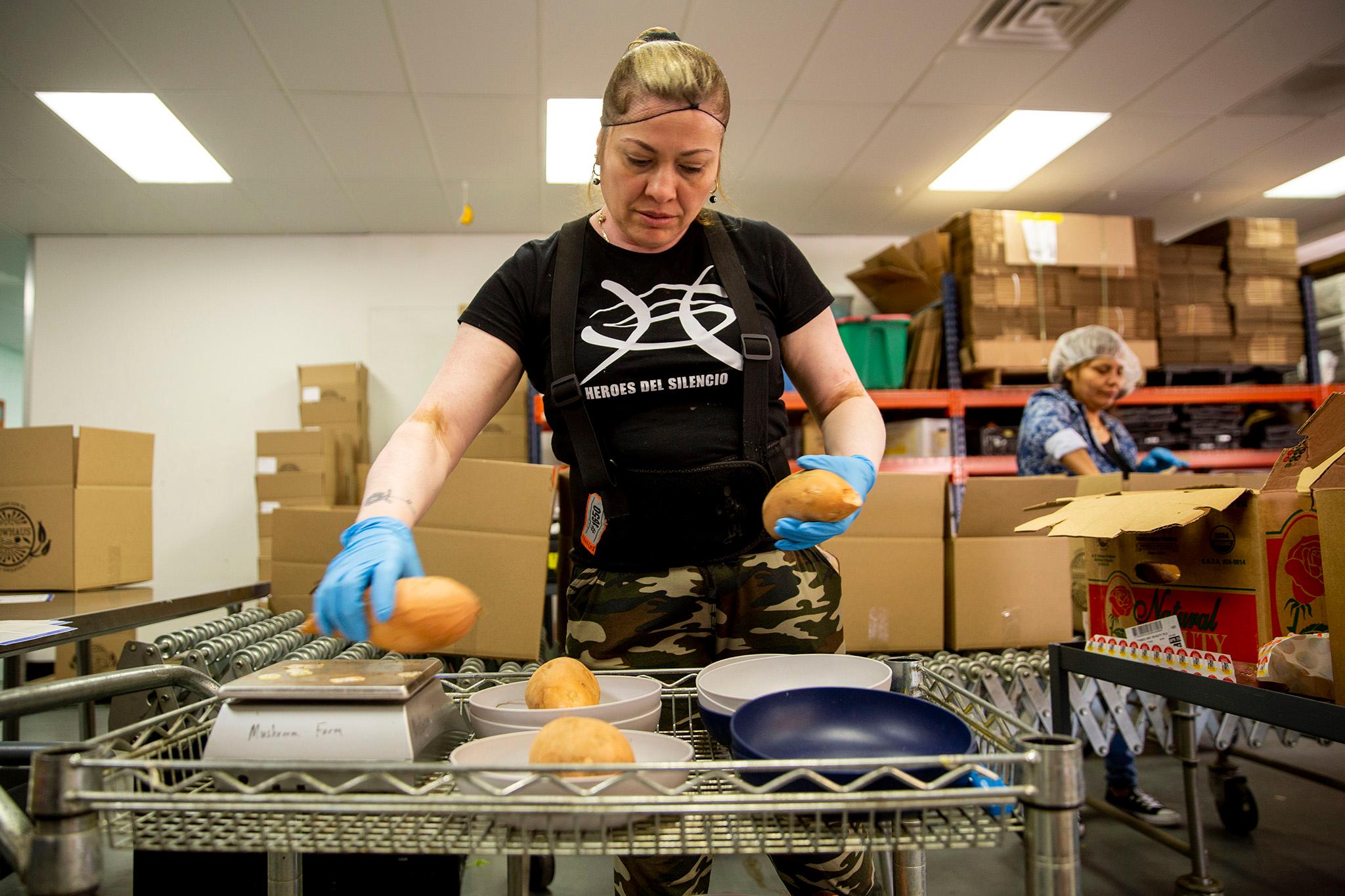
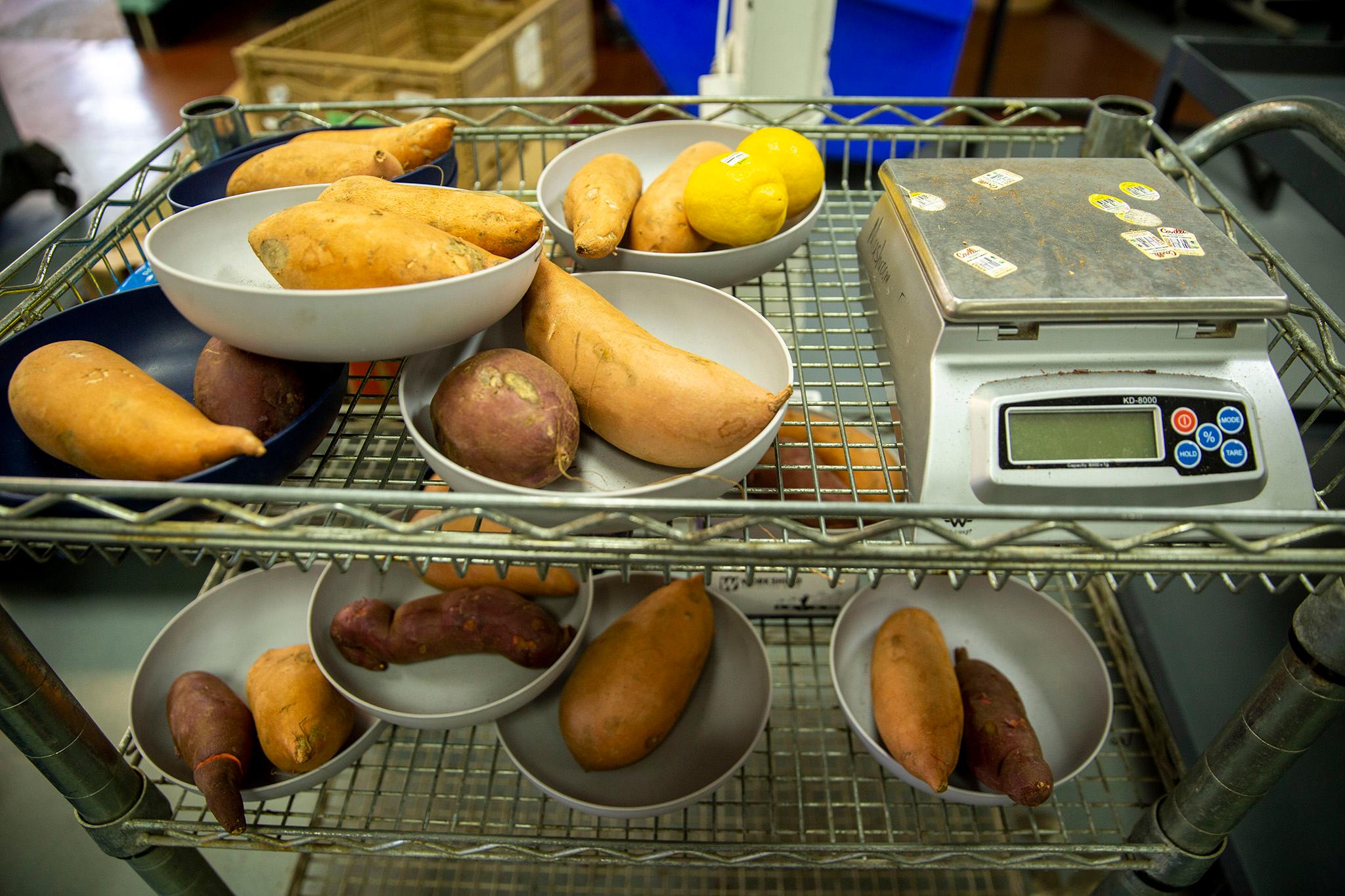
"Dolores and her husband have been attending the GrowHaus for years," said executive director Giselle Diaz Campagna. "They're one of the couples who have put everything they learned to the test. [Their garden] is the result of long-term trial and error. Whatever they learn, they implement."
GrowHaus has been serving residents in GES for over 10 years, providing food access through a small retail market that previously operated on a tiered pricing system.
That changed in 2020. GrowHaus' building on York Street closed indefinitely due to structural problems and the pandemic was causing further financial issues for GES families.
With the building closure and the pandemic, GrowHaus found a new warehouse and began delivering no-cost grocery boxes filled with pantry essentials and fresh food to residents.
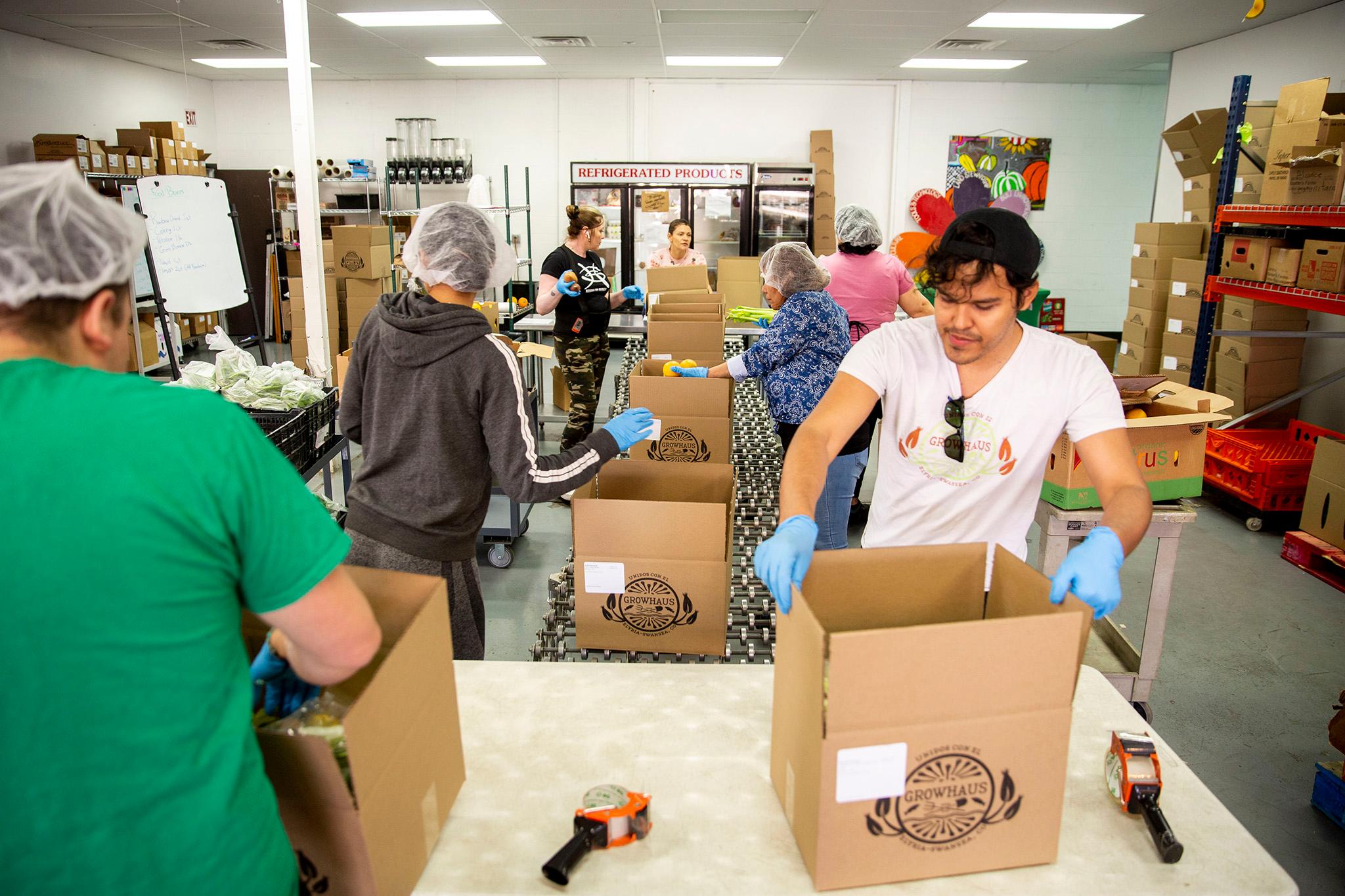
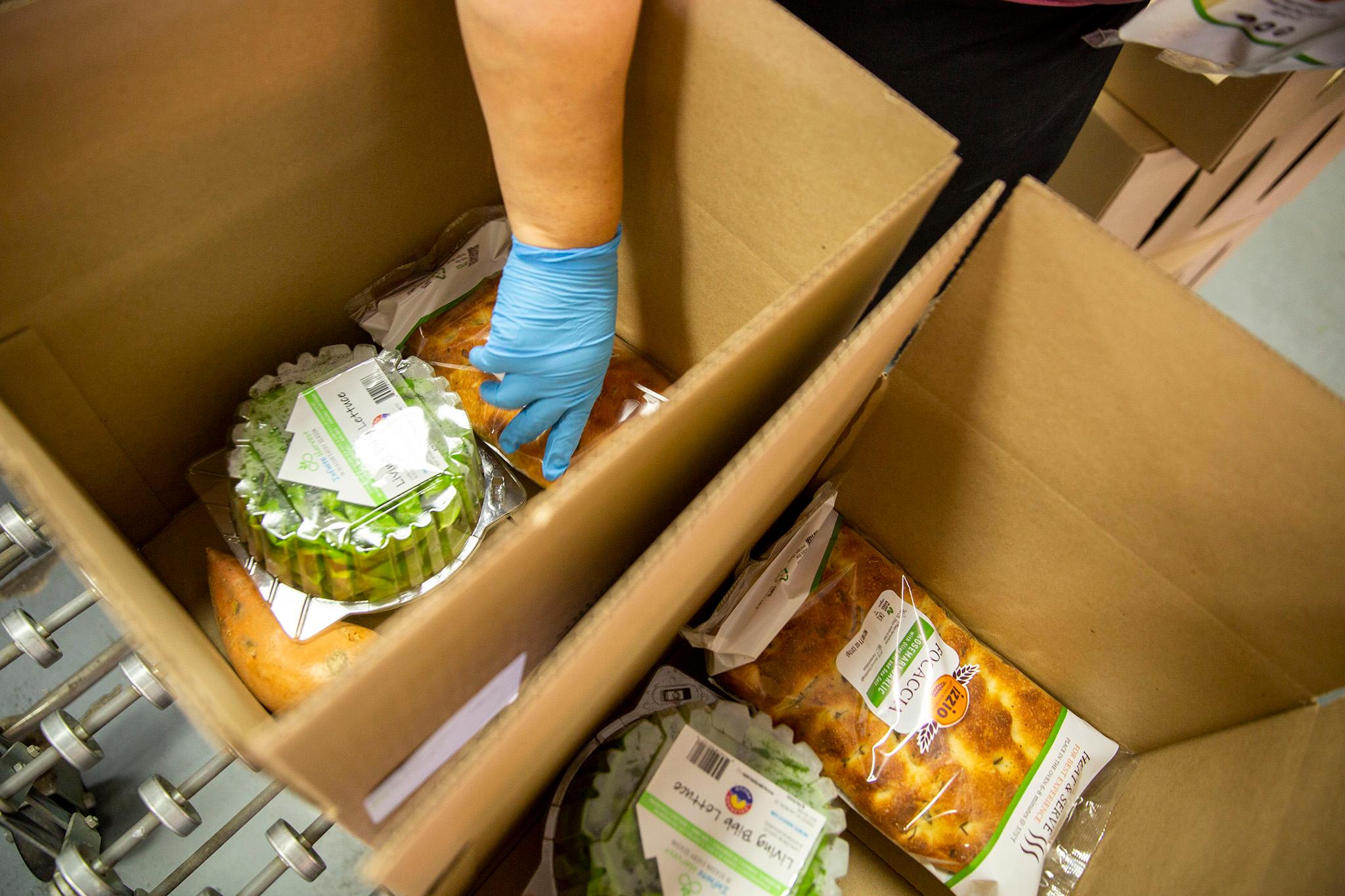
Since March 2020, GrowHaus has delivered more than one million meals through the no-cost grocery program.
"We had to vacate the building because of structural issues... but we immediately pivoted to: how can we serve the community right away," Diaz Campagna said. "We lost the building, our home, but with this pivot we were able to have our most impactful year ever. Seventy percent of the families we reach with this food access program are new to our programming. We rented a big warehouse and we literally hit the ground running. We had over 600 families that we distributed no-cost food boxes to. We've seen it taper down a bit as people go back to work, but we're still seeing a huge need for that food."
Diaz Campagna said GrowHaus now serves about 400 families, or about 2,500 children and adults.
Besides growing the food access program, GrowHaus has seen an increase in its youth education programs, along with their promotora services.
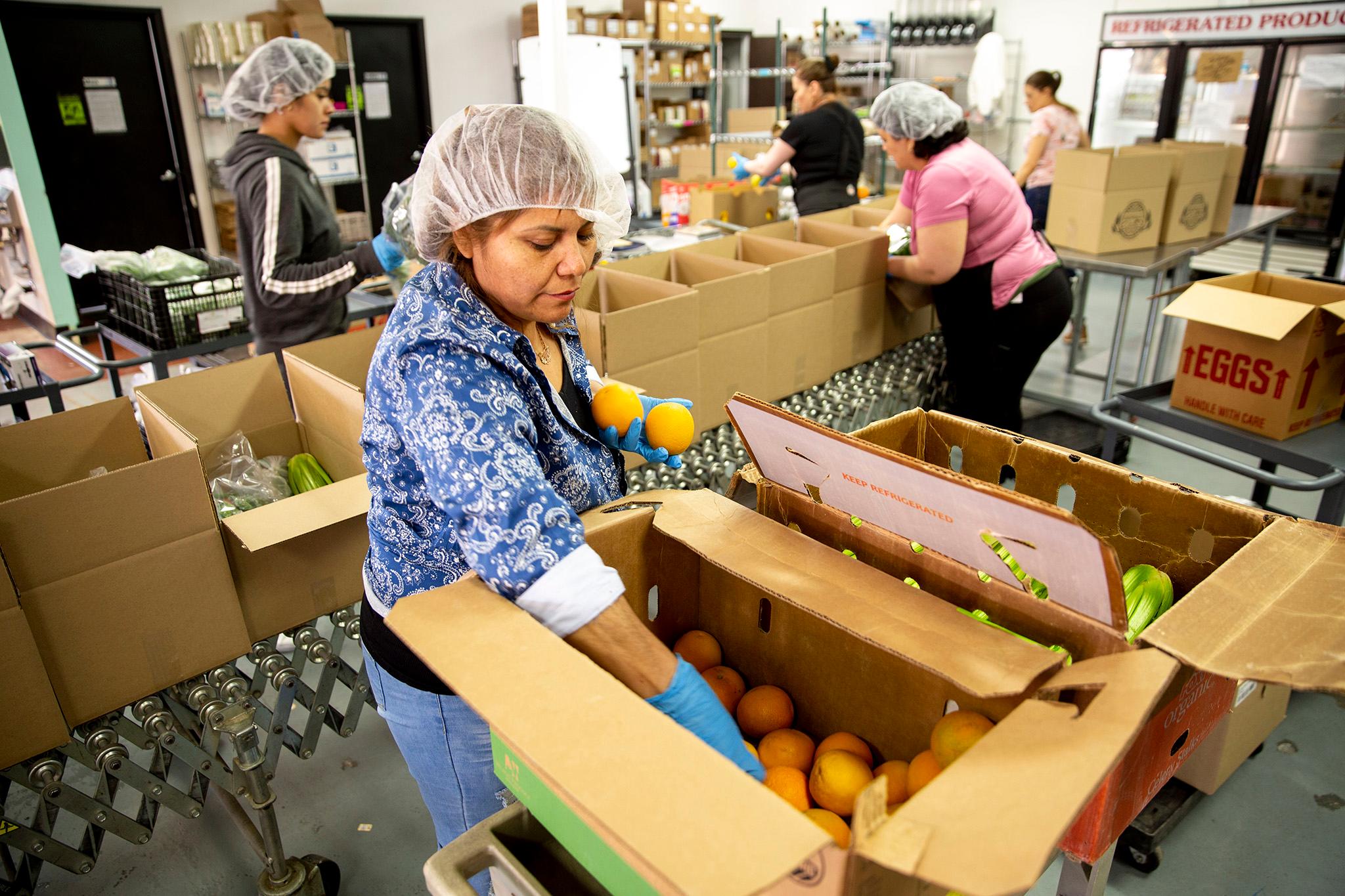
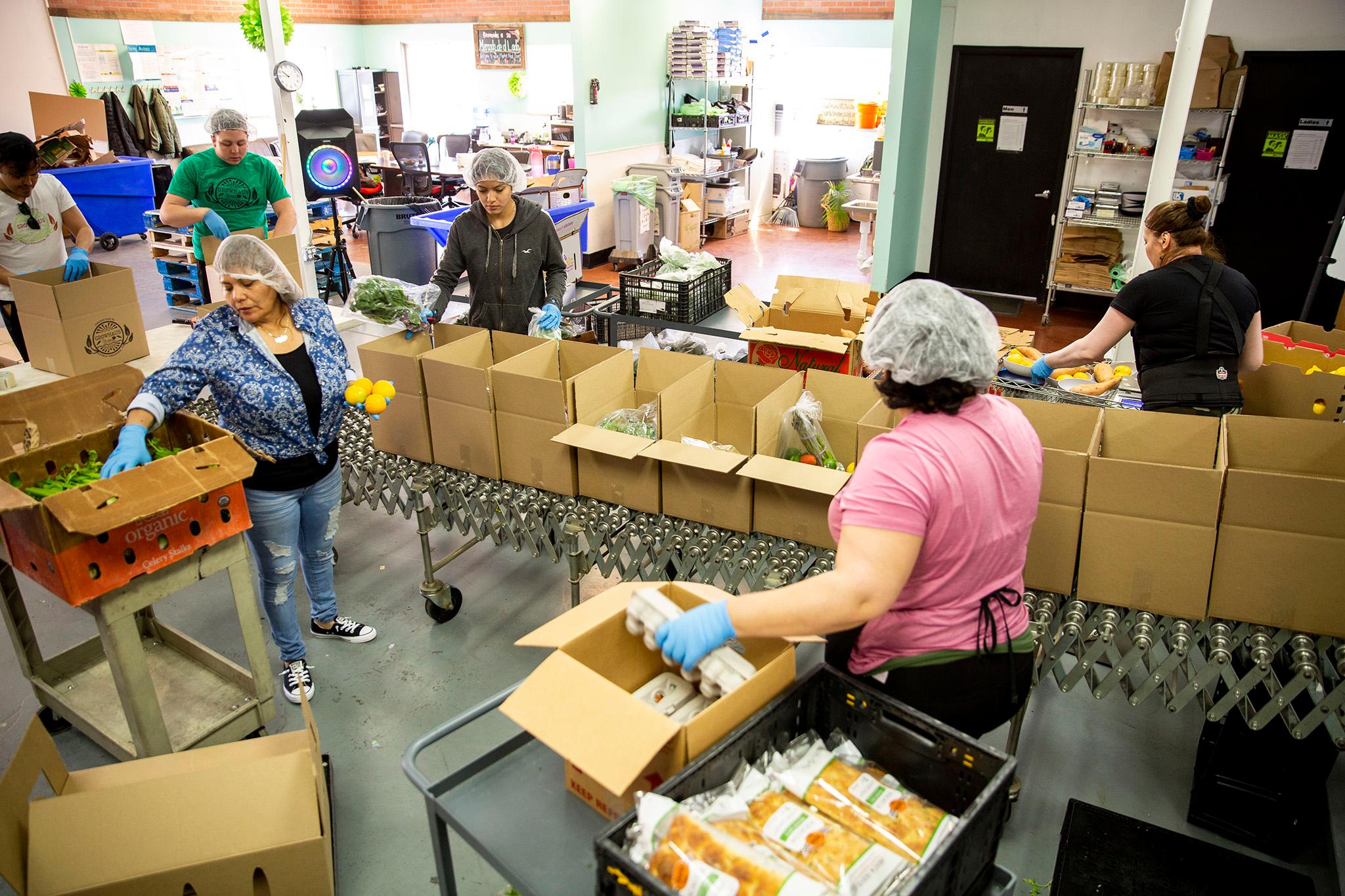
Seed 2 Seed is the youth education program that teaches teens about healthy living through gardening and exercising. Diaz Campagna said many of the teens move on to become promotoras, or food-box distributors.
The promotora services also teach residents about healthy living with at-home garden visits, cooking classes, sewing lessons and Zumba classes, and provide resources, such as teaching computer skills, education on government programs or applying for emergency assistance.
"People ask us 'How does this connect to food?' but for us food is the entry point," Diaz Campagna said. "Food access is really our starting point, but security, wellness and happiness are really our goals. Once you know where your meals are coming from you can then pay attention, get more engaged in other aspects of life. Go out to find a new job. Get training. We're trying to create a sense of security...by alleviating that immediate need for fresh food."
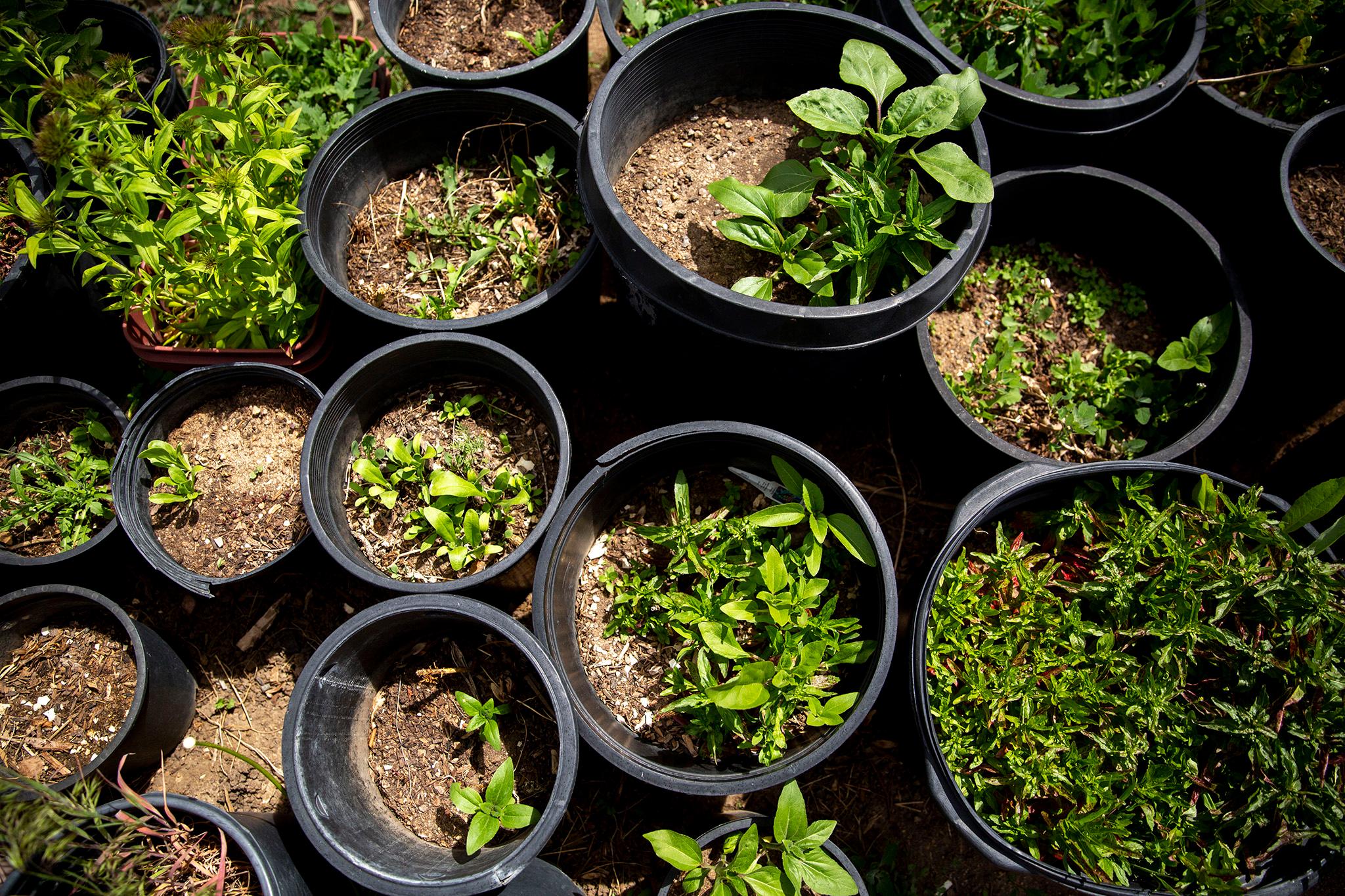
Guadalupe Rodriguez agrees. Rodriguez immigrated from Mexico to Colorado more than 20 years ago. She's lived in GES for about 15 years and started going to GrowHaus for the educational classes and gardening programs. About six years ago, she began working at GrowHaus, working her way up from a promotora and is now the community outreach associate manager, her first managerial role.
Rodriguez said her goal now is to provide the same services she was given to GES residents.
"Cuando trabajas desde tu corazón, no es trabajo," Rodriguez began.
She continued and Diaz Campagna translated, "How beautiful it is to be able to help the community in the same way. I meet a lot of people and I build a bridge to GrowHaus like I found GrowHaus. I come from the bottom. What I know, I have learned from GrowHaus. To computers, to project development. I come from this little, tiny town where I barely completed high school, and now I see myself and my leadership."
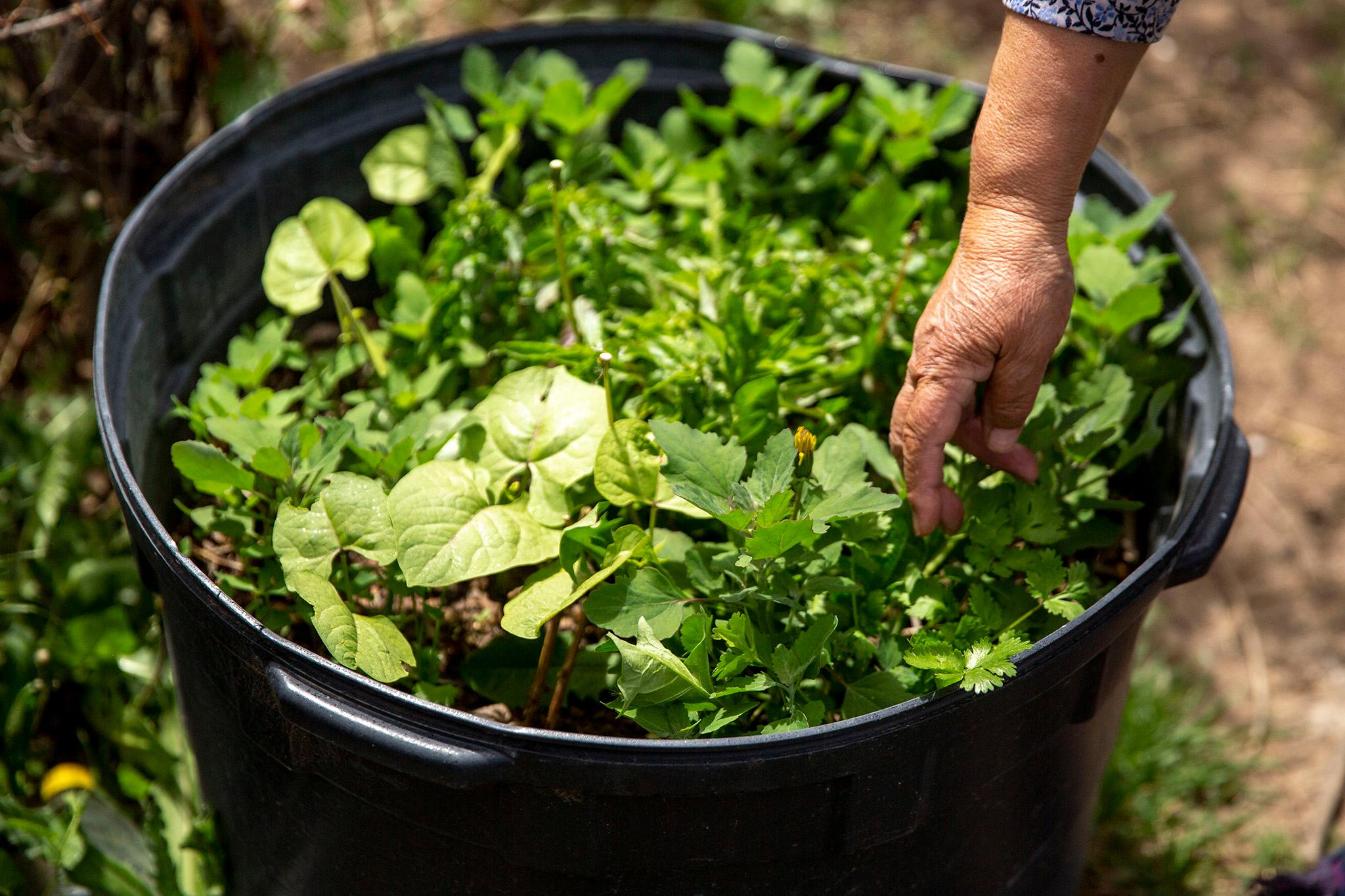
On a recent sunny and hot day, Rodriguez went to Alfaro's house to do what she does best: help a community member. Rodriguez wasn't alone. GrowHaus recently partnered with Colorado State University's new satellite campus, CSU Spur, at the National Western Center.
One of CSU's goals through Spur was to cultivate a relationship with GES residents, and one of those needs were raised garden beds.
Smelters in Elyria Swansea that operated from the late 1800s until 1993 spewed lead, arsenic, cadmium and zinc throughout north Denver, contaminating the soil and later triggering an EPA Superfund designation. The soil was eventually cleaned near residential homes, but some of the toxins remain in other reas. Alfaro said she could grow sunflowers in the dirt of her backyard, but anything else may not survive.
In general, it's hard to grow things in Denver, Diaz Campagna said, so the garden beds are useful.
To help, students in CSU's construction management program built several garden beds for the neighborhood. CSU also helped with soil purchases. Alfaro received one of the boxes and several bags of soil.
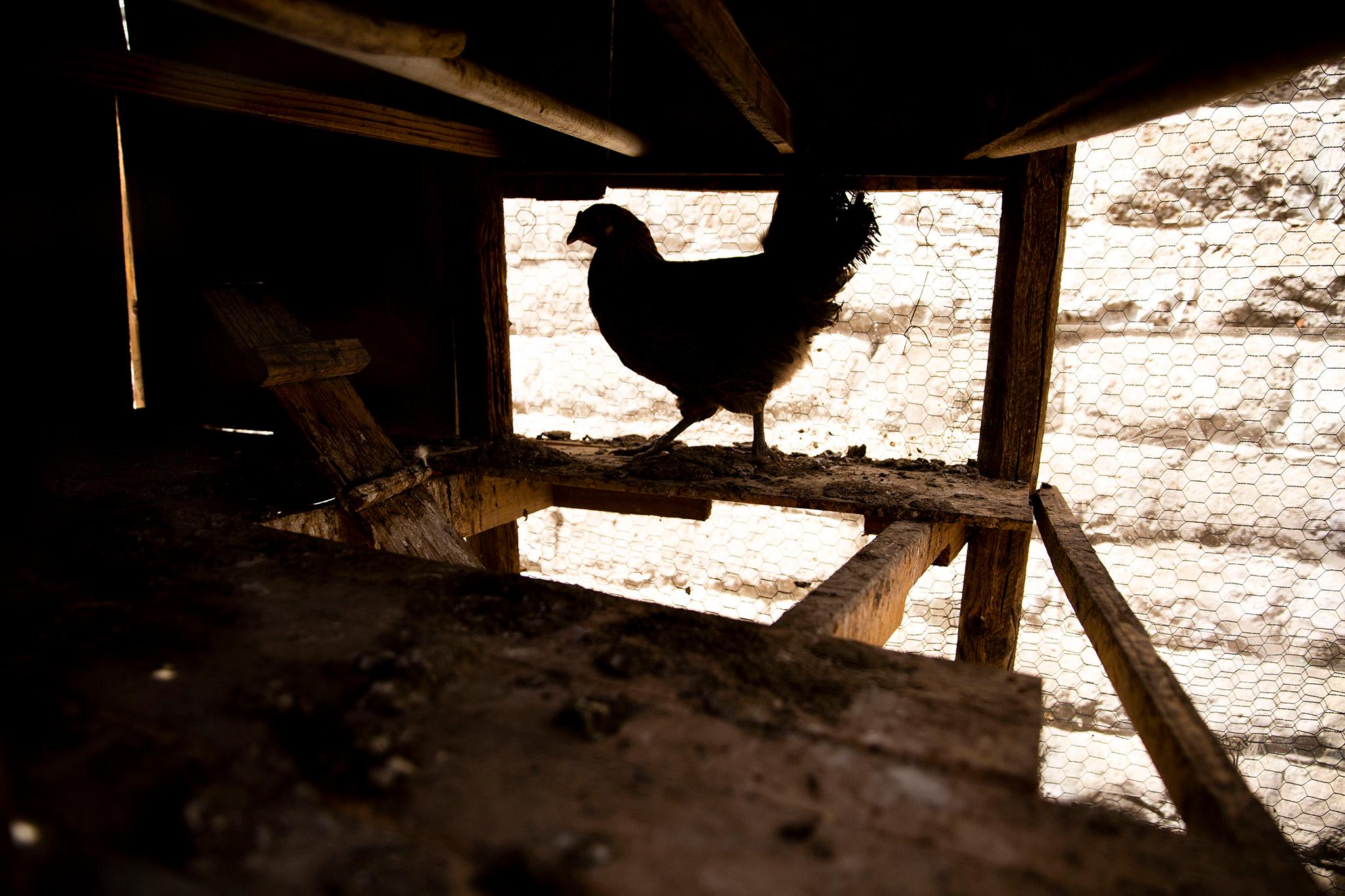
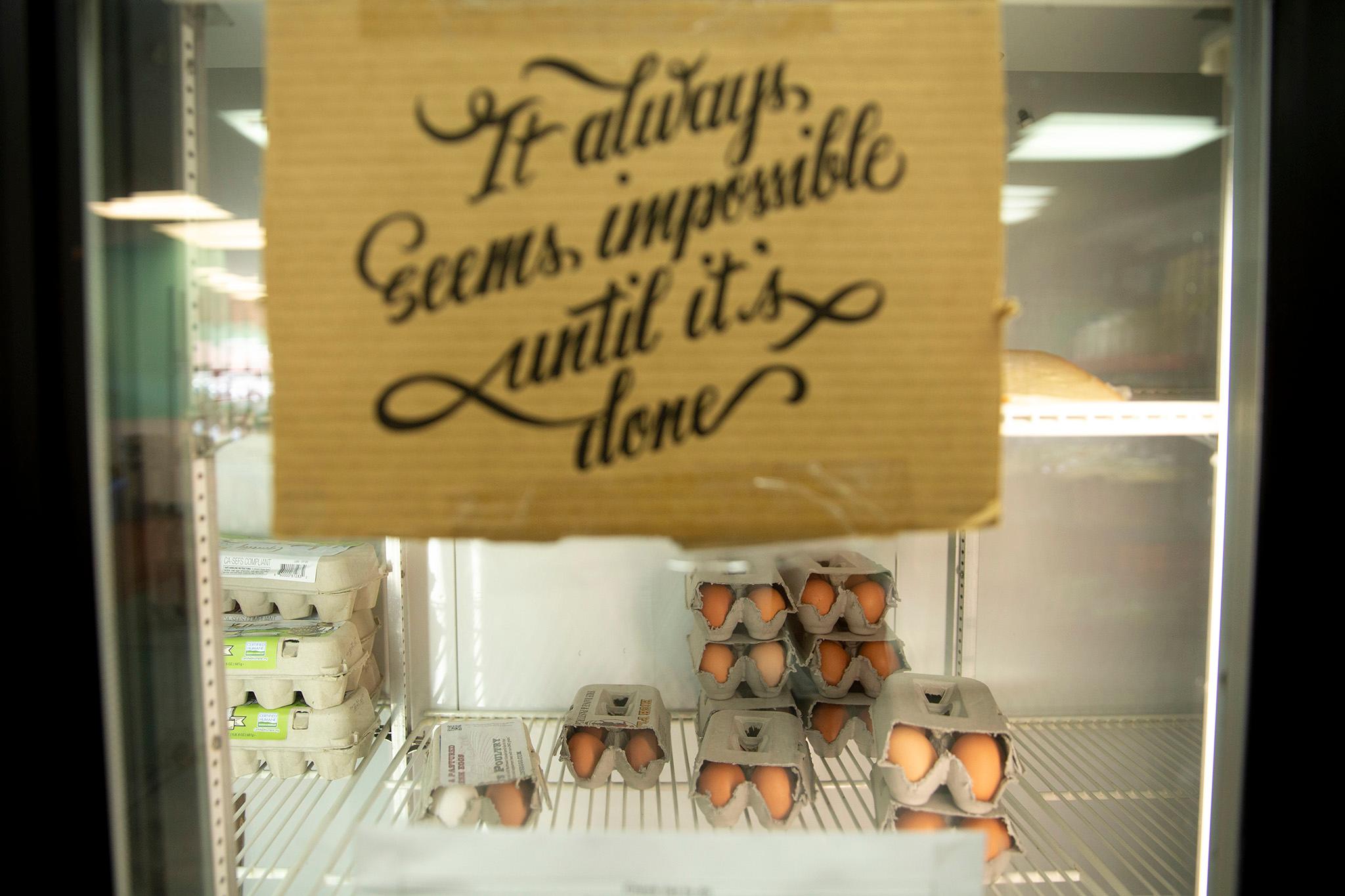
Before volunteers began filling up her boxes with soil, Alfaro went around the backyard pointing things out. She talked about how she makes jams with the fruit from her trees, making sure she uses the skin to get every ounce of fiber. She described how she uses some of the herbs to help soothe stomach aches through tea or by grinding them up into a powder to put in a capsule. Alfaro said she barely uses traditional medicine for headaches because of her herbs but cautions that doctors are very important.
Soon, Alfaro's granddaughter Alejandra joined the group in the backyard. She reminisced about how her grandparents would make her keep the seeds of everything so she could grow whatever it was. Alejandra would eat a fruit or veggie and automatically wash the seed off.
She added that she also dabbles in gardening because of her grandparents. She's growing roses and is helping her grandfather plant strawberries.
"You put in time and energy and you nurture something, then you see the growth of your seed, literally. It's pretty cool," Alejandra said. "It makes me proud. [Dolores] said it makes her happy, to see the things they've planted grow. It's been a huge influence, like, hey, this is the planet that I was brought into and this is the planet that I want you to have. And when they aren't here anymore, it's my job to continue taking care of it."
